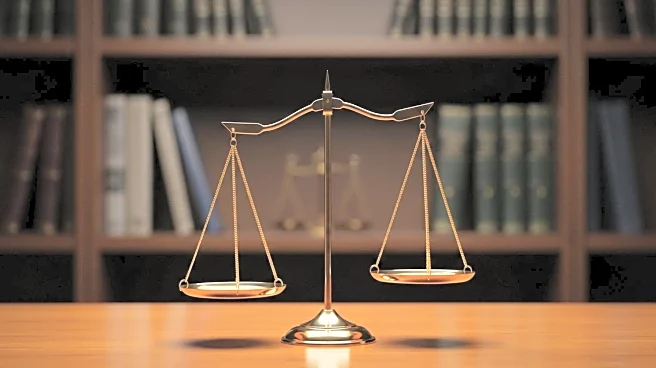What's Happening?
Vice President Kamala Harris has expressed criticism towards President Joe Biden's decision to run for reelection, describing it as 'recklessness' in her forthcoming book, '107 Days.' Harris argues that the decision should not have been left to Biden alone, suggesting it was driven by ego rather than collective judgment. In the book, Harris reflects on her tenure as Vice President, noting challenges in receiving positive recognition for her work and defending against negative narratives. She claims that Biden's staff contributed to negative stories about her performance and did not adequately defend her against Republican attacks. Despite these criticisms, Harris defends Biden against claims of incapability, emphasizing her loyalty to the country over individual allegiance.
Why It's Important?
The revelations in Harris's book could have significant implications for the Democratic Party and its leadership dynamics. Her critique of Biden's decision-making process highlights potential internal conflicts and differing perspectives within the administration. This public dissent may influence perceptions of Biden's leadership and decision-making abilities, potentially affecting his political standing and the party's unity. Harris's comments also underscore ongoing challenges related to gender and racial biases in politics, as she attributes her electoral loss to sexism and racism. The book's release may spark broader discussions on these issues, impacting public discourse and policy considerations.
What's Next?
The publication of Harris's book is likely to prompt responses from key political figures and stakeholders. The Biden administration may need to address the criticisms raised by Harris, potentially leading to discussions on internal dynamics and decision-making processes. Political analysts and commentators will likely scrutinize the book's content, assessing its impact on Biden's reelection campaign and Harris's political future. The Democratic Party may face pressure to reconcile differing viewpoints and maintain unity ahead of upcoming elections. Additionally, the book may influence public opinion and voter sentiment, shaping the political landscape in the lead-up to the next election cycle.
Beyond the Headlines
Harris's critique of Biden's reelection decision raises ethical questions about leadership and decision-making in politics. It highlights the tension between individual ambition and collective responsibility, prompting discussions on the role of ego in political decisions. The book also sheds light on the challenges faced by women and minorities in political leadership, emphasizing the need for equitable representation and support. These deeper implications may contribute to ongoing debates on political ethics, leadership accountability, and diversity in governance.









